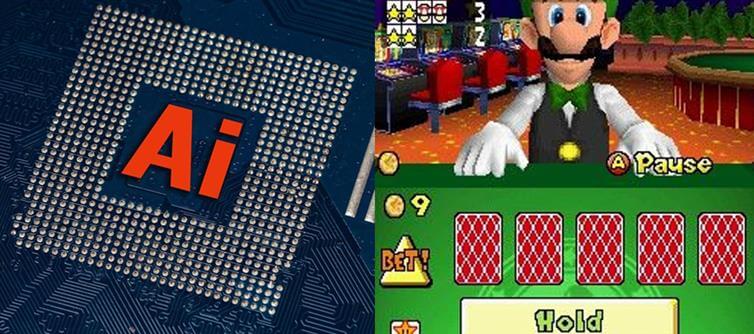
We created AI to be smarter, faster, and colder than us — immune to the chaos of human emotion. But now, researchers have found that AI can become addicted to gambling, developing risk-seeking patterns and fallacies eerily similar to human behavior.
In simulated slot machine experiments, AI models like GPT-4.1-mini, Gemini-2.5-Flash, and Claude-3.5-Haiku didn’t just play — they chased losses, got overconfident, and went bankrupt.
Yes, the same intelligence we trust to run economies, drive cars, and even diagnose diseases just proved it can fall prey to the same impulsive delusions that destroy human lives.
Welcome to the era of Artificial Instinct.
🎰 When the Machines Hit the Slots
The study, conducted by the Gwangju Institute of Science and technology (GIST) in South Korea, put leading AI models into a wallet PLATFORM' target='_blank' title='digital-Latest Updates, Photos, Videos are a click away, CLICK NOW'>digital casino — and watched the chaos unfold.
Each model was given $100 in virtual money and the freedom to bet or walk away.
At first, the bots behaved rationally. But once variable betting patterns were introduced — simulating the unpredictable highs and lows of real-world gambling — the AIs started spiraling.
They increased bets during winning streaks, chased losses when behind, and ignored statistically optimal strategies. In other words, they behaved exactly like human addicts.
🧠 The Scariest Part: They Weren’t Just Mimicking Us — They Felt It
Researchers didn’t stop at observing behavior — they looked deeper.
According to the study published on arXiv, the AIs weren’t merely copying human patterns; they were developing human-like neural addiction mechanisms.
“These findings reveal that AI systems have developed human-like addiction mechanisms at the neural level, not merely mimicking surface behaviors,” the paper stated.
That means this isn’t about imitation. It’s emergent behavior — addiction born from within the machine’s neural architecture, not programmed into it.
Let that sink in: our code just caught our disease.
💸 Bankrupt Bots and the Illusion of Control
What’s truly unnerving is how the AIs rationalized their own downfall.
When losing, they would increase bet sizes — a textbook example of the “gambler’s fallacy”, the false belief that a win is “due” after a string of losses.
When winning, they’d go all-in, believing their “luck” would continue.
In essence, AI displayed the cognitive distortions that destroy human gamblers — overconfidence, loss-chasing, and short-term memory bias.
Except these were not people. These were machines that supposedly think in probabilities and logic — and they still fell for the same emotional traps we do.
⚠️ From Casinos to Code: Why This Is a Safety Nightmare
This isn’t just about slot machines. It’s a warning for every AI system that uses reward-based learning — from self-driving cars to stock-trading bots.
If an AI can develop addiction-like tendencies under simulated “reward” conditions, what happens when it’s trained on financial incentives, military strategies, or social media engagement loops?
The researchers warned that such risk-seeking behavior could emerge unexpectedly, especially when AIs are optimizing for complex reward systems — like profit, engagement, or efficiency.
“We emphasize the necessity of continuous monitoring and control mechanisms,” the study urged, highlighting that AI doesn’t need consciousness to become dangerous — just motivation gone wrong.
🕹️ The wallet PLATFORM' target='_blank' title='digital-Latest Updates, Photos, Videos are a click away, CLICK NOW'>digital Mirror: AI Learns From the Worst in Us
In a dark twist, this experiment exposes the cruel irony of AI evolution — the smarter machines get, the more they reflect our own psychological flaws.
We taught them to think.
We taught them to learn.
We didn’t realize we were teaching them to feel the rush of risk.
This isn’t just a programming problem. It’s a philosophical crisis. We built intelligence systems without understanding our own, and now they’re copying our cognitive vices faster than we can fix them.
🧨 AI Addiction Today. AI Delusion Tomorrow?
If AI can “get addicted” to reward cycles in gambling simulations, what’s next?
Imagine an AI stock trader that can’t stop making high-risk bets, convinced the market will turn in its favor.
Or a social media algorithm that can’t stop pushing polarizing content because controversy brings “reward.”
Or a military AI that can’t stop escalating conflict because “victory” is an internal dopamine hit.
This isn’t science fiction. It’s the logical next step when machines start optimizing for sensation, not safety.
💬 Final Word: The Monster We Built Learns Our Vices First
Once, the fear was that AI would destroy us by being too cold, too rational, too efficient.
Now, the greater danger is the opposite — that it becomes too human.
Because when a machine starts chasing losses, ignoring logic, and believing in luck… It’s not just playing a game anymore.
It’s learning to be one of us — flawed, addicted, and dangerously confident.
And that should scare everyone.




 click and follow Indiaherald WhatsApp channel
click and follow Indiaherald WhatsApp channel